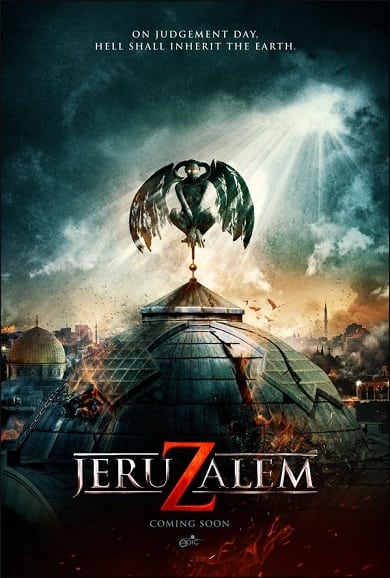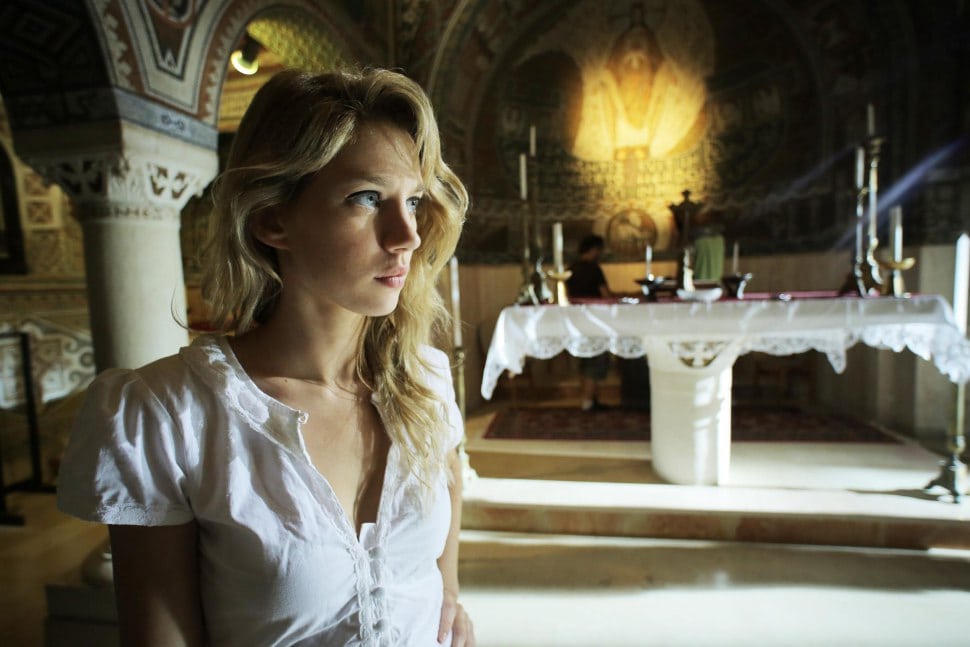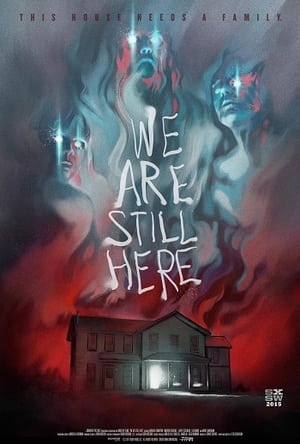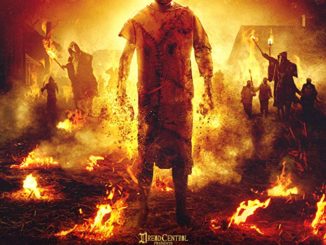Fright Fest is not just a time to see the latest horror films – it’s also a chance to meet some of the dark minds behind them. A few hours before watching the excellent Jeruzalem (reviewed here) Horror Cult Films had the opportunity to sit down with sibling filmmakers Doran and Yoav Paz. Here we talk about their working relationship, the concept for the movie, found footage and the H word.
HCF: Hello guys, thanks for speaking to us
Y: Our pleasure.
HFC: So as brothers co-directing a film, what’s your working relationship like? I see you’re also co-writers on the script.
D: Actually we’re co-everything. There’s no particular things I do that he doesn’t. We develop the concept together, we write together, we Ping-Pong our drafts together. We only have one rule – on the set there’s only one of us that talks to the actors because that’s a very delicate job
HFC: Do you take it in turns doing that part?
Y: No that changes, but it’s very intuitive.
D: We get sick of each other too- that’s part of the job – but I’ve still got to see him the next morning.
Y: The thing is, to direct a film is very difficult: it’s like going to war. To make a film is like going to war. Not the shooting – the whole process. The writing, the pre-production – everything has just so much politics and so much fighting to make people do what you want, to make them do it the right way. And it takes a long time. So if you’re a two headed monster it helps.
D: We’re definitely a two headed monster. Especially on set.
Y: Which makes it a lot easier.
HFC: And is this a working relationship you’re always going to stick to.
D: I think so. It’s easier and more fun – it’s good to have a partner. Our dad is also a filmmaker, but he worked on his own and we saw how hard it is. Especially when it’s independent. But with two it’s good to argue and to have a dialogue.
Y: If you have an idea you need to fight for it – to justify it.
D: Because if you don’t justify it then maybe there’s something wrong and it’s not a good idea. You make creative decisions along the way – literally, in movies there’s hundreds of people working on them. When you work on a movie you work with so many people for so long, two or three years. With so many management decisions to be made, so it’s good to have a partner.
HFC: So with Jeruzalem you’ve done a film about American tourists visiting Israel and encountering Judgement Day. Pardon the pun, but can you explain the genesis of this concept?
Y: For years we thought to ourselves ‘how come nobody did an apocalypse movie about Jerusalem’ , when it’s the perfect set up for it. You’ve seen movies about the apocalypse in cities all around the world: Bostin, then you have REC – everywhere, but nobody’s been dealing with Jerusalem itself. Though the bible, and its scriptures are set there, so that’s where we took it.
D: And then we see World War Z and it was shot in Malta
HFC: Ah – didn’t know that.
D: It’s funny because you see the choppers above the city, then they’re flying across the ocean but there’s so ocean in Jerusalem. But in World War Z you see it.
Y: We say it every time we walk the streets of Jerusalem – that we’re amazed how great location it is. And we always said we’d shoot a film here. Especially a horror film because you just feel the history everywhere you walk – you see these ancient places because it’s a city that’s existed for 3000 years. Everything’s just there.
HFC: And was bringing the Americans there always the intention? Or was that because you’d have a potentially international audience for your movie?
D: Actually it was a combination – this idea was a mix if two ideas we had. One we just told you, and for the other one we really wanted to make a movie about experiencing the city of Jerusalem. But the real experience and not the one you see on postcards and National Geographic. We wanted the roughness of the city, the mystery of the city. So we always had this idea of American tourists coming to this city and using their POV to really experience the city.
HFC: And what kind of designs were you aiming for with the creatures?
Y: We wanted to make them demons and more dark angels that could have come out of the bible. So we tried to find the right way to combine practical effects and special effects to make them up. Classical combined with CG: it’s the best thing to do.
D: We wanted to make them our versions of zombies. Not regular ones – more devilish and biblical.
HFC: Is there much of an Israeli horror scene at the moment?
Y: It’s seemed for many years everyone is doing only drama or sometimes comedies – people are now starting to understand that there’s more to it. Film’s a medium where you can do whatever you want, and now the technology has gotten more accessible.
D: And there’s now a new generation of filmmakers in Israel. There’s older ones who have done their drama, we respect them – but the younger ones are more global, more international and have a different perspective on things. It’s amazing for us because the genre industry is now moving.
Y: And other people are saying they’ve had enough of the usual subjects. There’s been enough on the holocaust, there’s been enough on Israelis vs. Palestinians – there were so many movies made on these topics before. The new generation are looking for something new.
HFC: Was this film always intended as found footage?
Y: We see it as more of a POV.
D: We want to do something where the audience experiences what the protagonist experiences like a first person shooter.
Y: We wanted it so all the other actors are talking to the camera, and when she crawls in the dark people the audience see how it feels to crawl in the dark. Like a sort of virtual reality. But we didn’t know what to do about it. Then a few years ago everyone started talking about Google glass with verbal technologly and this gave us our window.
D: This also gave us another layer, a technological layer, where we could present more information. You don’t see it in the trailer, but the entire film is through a smart glass – not Google. So there’s verbal technology and augmented reality. This means we could use social media in it too as another form of storytelling. It’s the oldest story with new technology. We don’t like to call it found footage because, while it’s obviously a found footage technique, we think this takes it to the next level.
Y: This also tells us why they keep filming and not concentrate on getting away. Now she just has to wear the glasses and that’s it.
HFC: Have you always been fans of horror?
D: Well we got our first camera from our dad when we were 10 and instinctively we started shooting horror movies – just killing all our friends. We love the genre, though we do drama also. We love the genre – it’s a very good place to show your abilities.
HFC: And what are some of your favourite horror movies?
D: Rec – that for me is one of the best ever made.
HFC: Good pick.
Y: A Serbian Film – I can’t get it out of my mind unfortunately.
HFC: That’s one that divides people.
Y: But then there’s Funny Games too, though that’s maybe more of a dark drama.
D: It’s difficult to say a lot of the time because a lot of films have these dark parts to them.
HFC: Is this maybe more of a thing about horror being a dirty word?
Y: Yeah, because when you tell someone you’re making a horror movie they assume it’ll be a chainsaw massacre. But it’s much more developed now. Though it maybe always has been.
D: Even Hitchcock films, in a way, are horror too.
HFC: Great speaking with you – thanks.
D: Thanks.









Be the first to comment